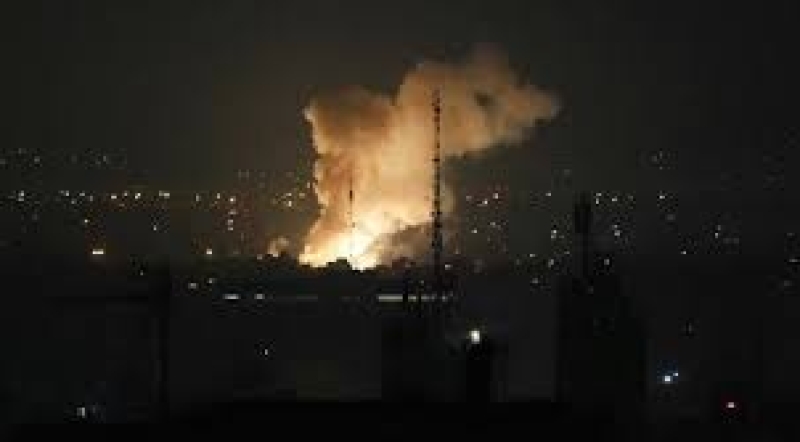- Puppet show enchants Children as Boi Mela comes alive on day 2 |
- DSCC Admin Salam’s drive to make South Dhaka a ‘clean city’ |
- 274 Taliban Dead, 55 Pakistan Troops Killed |
- Now 'open war' with Afghanistan after latest strikes |
- Dhaka's air quality fourth worst in world on Friday morning |
Israeli Airstrikes Kill 224, Mostly Civilians: Iran

The Iranian health ministry announced on Sunday that a series of Israeli airstrikes over the past three days have resulted in the deaths of at least 224 people and left more than 1,200 wounded, marking one of the deadliest escalations between the two countries in recent years.
"After 65 hours of aggression by the Zionist regime, 1,277 people have been injured. 224 women, men, and children have been martyred," ministry spokesman Hossein Kermanpour stated on social media platform X. "Ninety percent of the fatalities were civilians."
The strikes reportedly targeted a wide array of infrastructure in cities including Isfahan, Shiraz, and Tabriz. Footage circulating on Iranian state media showed damaged residential buildings, overturned vehicles, and crowds gathering outside overwhelmed hospitals. Emergency services have been working around the clock, with several provinces reporting blood shortages and power disruptions.
The Israeli government has not officially commented on the death toll but confirmed on Friday that it had conducted what it termed "precision operations" inside Iran, in what it described as retaliation for Tehran’s alleged involvement in a drone attack on Haifa earlier this month.
Tensions between Israel and Iran have escalated sharply in recent weeks following a series of tit-for-tat exchanges, with regional actors warning that the conflict could spiral into a broader Middle East war. Analysts have described the latest Israeli action as the most extensive aerial assault on Iranian territory since open hostilities began between the two archrivals.
International reaction has been swift. The United Nations has called for an immediate cessation of hostilities, while several humanitarian organizations have urged both sides to protect civilians and grant access to aid workers.
"This level of civilian harm is deeply alarming," said Jan Egeland, Secretary General of the Norwegian Refugee Council. "We call on all parties to respect international humanitarian law and prioritize human life over strategic gain."
As funerals began in several cities, Supreme Leader Ayatollah Ali Khamenei vowed that the "blood of the martyrs will not be spilled in vain," fueling speculation that Iran may soon retaliate.
The United States, a key ally of Israel, has urged de-escalation. In a statement issued from Washington, Secretary of State Antony Blinken called for “immediate efforts to halt the violence and resume diplomatic dialogue,” even as he reiterated Israel's right to defend itself.
Meanwhile, Iranian hospitals remain under strain. Local media reports indicate that many medical centers are operating beyond capacity, with some patients being treated in corridors and parking lots. The health ministry has called for volunteers to donate blood and assist medical teams as emergency resources continue to dwindle.
With tensions still high and no clear path to a ceasefire, the coming days may prove critical in determining whether this latest chapter of violence gives way to further escalation—or a reluctant pause.

